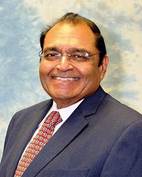Contribute
| AAPI Focuses On Cardiovascular, Diabetes, & Stroke |
07/25/2013
Heart disease has emerged as the number one killer among Indians, according to a recent study by the Registrar General of India ( RGI) and the Indian Council of Medical Research (ICMR). About 25 per cent of deaths in the age group of 25-69 years occur because of heart diseases. If all age groups are included, heart diseases account for about 19 per cent of all deaths. It is the leading cause of death among males as well as females and in all regions of India, the study found. India, with more than 1.2 billion people, is estimated to account for 60 percent of heart disease patients worldwide. According to the World Health Organization, heart related disorders will kill almost 20 million people by 2015, and they are exceptionally prevalent in the Indian sub-continent. Half of all heart attacks in this population occur under the age of 50 years and 25 percent under the age of 40. It is estimated that India will have over 1.6 million strokes per year by 2015, resulting in disabilities on one third of them. The need is urgent. It is in this context that the American Association of Physicians of Indian Origin (AAPI) has launched educational †Dr. Kamini Trivedi, Co-Chair of AAPI Lipid Network, a Scientific Advisor to the "Cardiovascular, Diabetes & Stroke" Focus and the Chair of the AAPI Industry Physicians Committee, states, “AAPI has launched educational networks of renowned thought leaders in the areas of Cardiology, Diabetes, and Stroke to foster education of AAPI physicians in these important areas which heavily impact the Asian Indian community and the US as a whole. These networks will educate AAPI leadership and member physicians on cutting edge disease topics and cutting edge intervention. Through these networks, AAPI is excited to showcase the full heights that Asian Indian physicians have reached, elevate educational quality, stimulate the AAPI general physician members, bring further recognition to these renowned physicians, and inspire our young physicians-in-training." “Coronary artery disease has reached epidemic proportions. Although there is some level of awareness regarding smoking, dietary habits and diabetes, somehow there is no massive intervention on a national level either by the government or by the physicians,†says Dr. Nishit Choksi, a Michigan cardiologist. “AAPI hopes to achieve high quality educational programming in the US with this new focus theme and its Networks,†says Dr. Joseph Chalil, Scientific Advisor of the Program and a Senior Associate Director atBoehringer Ingelheim. Accordingly, " Although Asian Indians are the highest socioeconomic group in the US, and one of the best educated, a recent study by Kaiser found that the hospitalization rate for heart disease among Indian patients was four times that of non-Indian patients. According to Dr Enas et al, serious forms of coronary heart disease, especially left main coronary artery disease and three vessel disease are relatively more common among Asian Indians. Coronary artery disease (CAD) tends to occur earlier in life and in a higher percentage of the population in Asian Indians than in other ethnic groups. Asian Indians typically develop a heart attack 10 years earlier than other populations. Dyslipidemia and the atherogenic triad of low HDL-C, high triglycerides, and high levels of small dense LDL particles is very prevalent among Asian Indians. Among Indians living in the U.S., Indian women have the highest CAD mortality, 30% higher than Whites and 325% higher than the Chinese. Prevalence rate of diabetes in Asian Indians living in the U.S. was found to be 17.4% in the DIA study by Misra et al. There was a high frequency of hypertriglyceridemia (42.3%), increased total cholesterol (43.5%), high LDL-C (41.4%, low HDL-C (26.4%), elevated C- reactive protein (65%), and homocysteine (40.5%). Physicians of Indian origin in the United States are reputed to be leading health care providers, holding crucial positions in various hospitals and health care facilities around the nation. The ability share knowledge and influence the medical world has never been greater. With the advancement of modern technology, the quality of care we provide and the values that we support can reverberate around the world as never been before. “AAPI has a mandate to help disseminate our medical knowledge, our expertise and technological advances to the rest of the world, and to India in particular,†says Dr. Shah. While serving as an umbrella organization for more than 130 member associations nationwide, AAPI was formed to coordinate the efforts of the physicians of Indian origin, currently working in the United States. Headquartered in Chicago, AAPI has come to be recognized as a strong voice in the healthcare legislation and policy arena. For more information on AAPI, please visit: www.aapiusa.org.Dr. Jayesh Shah, president of AAPI, states Dr. Navin Nanda, a Distinguished Professor in the field, Chairs the committee on "Cardiovascular, Diabetes & Stroke" focus theme. In addition, the initiative's Scientific Advisors include Dr. Narendra Kumar, Past-President of AAPI, Dr. Joseph Chalil, and Dr. Kamini Trivedi.
You may also access this article through our web-site http://www.lokvani.com/
